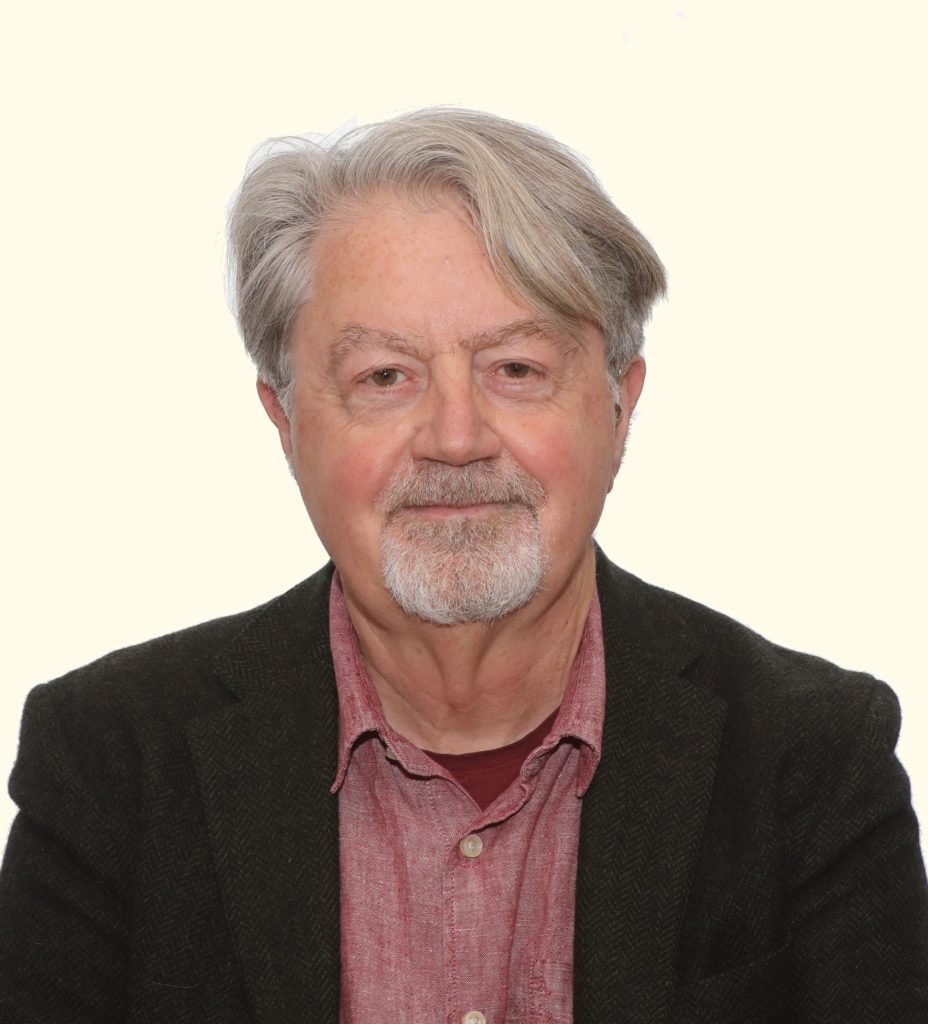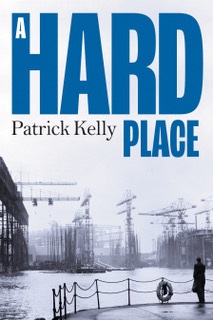
YORK journalist and editor Patrick Kelly’s first foray into “the novel-writing business”, A Hard Place, will be launched in the Upstairs Bar at Everyman York, Blossom Streetr, York, at 6pm tonight (12/12/2022).
Inspired by his own childhood in Belfast, his ill-fated love story is set against the backdrop of a political event that foreshadowed the Troubles in Northern Ireland.
Inside every journalist is a novel, the saying goes – even if Austrian writer and journalist Karl Kraus (1874-1936) quipped “and if he’s smart, he’ll keep it there” – and now Patrick is joining that club, bringing all his experience of long service to the fourth estate.
What’s more he is doing so in York, the city where Kate Atkinson, Matt Haig and Fiona Mozley’s novel-writing talents blossomed.
“There’s an awful lot of writing going on in York, and that’s helpful if you’re going to write a novel – which I discovered was a hell of a lot harder than I thought it would be,” says Patrick.
“As a journalist, you think it will just be writing a long story, but it turns out it’s a completely different animal.
“What I found useful in this city is that there are lots of writers and writers’ groups, and I must praise Lizzi Linklater, who was a creative writing tutor at the University of York (and is now Teaching Fellow for Creative Writing at the university’s Centre for Lifelong Learning at Heslington).
“She convened this little group that met once a month at the library [now York Explore] and encouraged each other in our writing.”
How did Patrick find the novel-writing experience? “It can be very lonely writing, and even if you’re writing from home as a journalist, part of the job is going out and meeting people,” he says. “Writing a novel, you have to create an atmosphere of your own, but the great thing about being part of a group is that you do it in an atmosphere where you’re willing to accept criticism, and that criticism is informed criticism from people who are doing the same things as you are.
“When you show your writing to friends and family, they usually say, ‘I don’t like it, but I don’t know why,’ whereas fellow writers can spot common mistakes or things that don’t sound quite right.”
Lizzi Linklater’s group morphed into another one. “Now there are two or three around York, and York St Jon University now does a creative writing programme with poetry readings in various places around the city,” says Patrick.
So, to the business of writing A Hard Place. “I knew I didn’t want to write a Troubles novel,” he says. “That’s been done to death, and there are some appalling novels…as well as good ones.
“I wanted to focus on Northern Ireland before the Troubles and maybe explain how the Troubles came to be, and also what it was like growing up there at that time.
“I left in 1973, pretty much at the start of the Troubles, but I had five years’ experience of what it was like before I left at 18 to study History and Politics at Warwick University.”
Those studies could be called on all these years later when writing the book. “It’s about looking at the evidence,” he says.
Patrick had grown up as a Roman Catholic living in a Protestant area of east Belfast. “Everything was more mixed in those days than it is now, which is one of the legacies of the Troubles,” he says. “Communities have become more divided, physically, geographically and politically.
“As a child, I would play with both Protestant and Catholic children. You went to a Catholic school, but your neighbourhood was mixed. I mainly played with Protestant children, and we all went to watch the Protestant football team because they were the local club.
“Those were the days when you were lifted over the turnstiles by friendly adults, and I saw George Best play at Windsor Park. He was a beacon on a dark day, a shining light who transcended the whole Protestant-Catholic thing.
“There’s now a programme to replaces sectarian murals with ones that are more acceptable: Bestie, Van Morrison, CS Lewis, because he was born in east Belfast.”
Patrick vowed to write about not only the roots of the Troubles but also about the society that existed in Northern Ireland at the time and just how different it was. “The storyline is based on a true incident, when the Northern Irish government employed an English academic, Sir John Lockwood, to decide on the siting of a new university,” he says.
“He was a knight of the realm, a Latin scholar, a man who had experience of setting up universities…in colonial Rhodesia, South Africa and Nigeria. So, he was the obvious man to go to Northern Ireland!
“He comes along with a bunch of his mates from English academia and a smattering of locals, but not a single Catholic among them.”
The assumption was that Derry/Londonderry would be the obvious place to site the university. “But the committee, at the end of their deliberations, decided not on Derry, the largest centre of population after Belfast, but on Coleraine, a small Protestant town some 20 miles from Derry, which had lobbied hard, and it caused a huge outcry.
“In the book, I try to be fair to Sir John, who was trying to do his best in a difficult situation he didn’t really understand, but it emerged that people high up in the Unionist Party had persuaded the Northern Ireland government not to place it in Derry.
“The reason being that they didn’t want a Catholic city to prosper, which having a university there definitely would have helped it to do. This was the 1960s, when the idea of an influx of politically minded students into a Catholic city was not considered desirable – though Derry now has a campus that’s part of the University of Ulster.”
In A Hard Place, Sir John Lockwood employs the entirely fictional David McMaster, a young English Oxford graduate, recruited in 1965 to help look for a site for the new university in Ulster. “His job is to act as secretary to the committee and to be Sir John’s eyes and ears in Northern Ireland when he’s elsewhere,” says Patrick.
“So, this young man, intelligent but naïve, finds himself at a complete loss within this world, but he makes a friend who shows him the ropes and, more importantly, he falls in love with a young Catholic girl, Catherine Connolly, and it’s their ill-starred love story that’s at the core of the book.
“He’s Protestant but not religious at all; she’s Catholic, religious, but quite critical and radical in her views, a political firebrand. Through their relationship, they learn something from each other.”
Patrick says that “when you start writing, you’re not entirely certain what they will do”, “but I I knew from the beginning of their relationship that it would not work out. I think I even say in the blurb on the back that it’s not going to be a happy ending.
“They’re in their 20s, she’s a student, reading English Literature, and they meet at the Maritime Hotel, in Belfast, where Van Morrison used to have a residency, when he was in the band Them, (so there’s a scene where Van sings Gloria).
“Anyway, I wanted to say something about how Northern Ireland was changing at the time, how young people were throwing off the shackles of their elders and enjoying a different kind of music – and who knows where it might have led, had it been allowed to develop [in Derry].
“I try to suggest what could have happened. If you think of all the new universities being built in the 1960s, like in York and Warwick, when the idea was to bring a new dynamic, to create a future economy and a society that was highly educated, open to the world and to new horizons.
“That was the political consensus at the time, for the Conservatives and Labour, that what you needed to do to prosper was to invest in education. So there’s something in the book about a lost opportunity, though I’m hoping the book is not a polemic.
“It’s not meant to be polemical; it’s a novel about a time and a place when opportunities were opening up but in Northern Ireland that vision was closed down because of a narrow, sectarian view of the world, which sadly triumphed briefly.”
Explaining the title, Patrick says: “It’s an acknowledgement of both being between a rock and a hard place and in that hard place. The reason I went with that title is that I thought it captured how the protagonist, David, experienced Northern Ireland in the end.”
Patrick has settled on the self-publishing route, in tandem with Silverwood Books, with A Hard Place being available in paperback at £10.99 and on Kindle at £3.99, initially via Amazon. Orders also can be made directly to Patrick at patrickkelly1@hotmail.co.uk or www.jornalistpatrickkelly.com.
Patrick Kelly’s book launch for A Hard Place takes place at Everyman York, Blossom Street, York, tonight (12/12/2022) at 6pm. Drinks and nibbles provided. RSVP to patrickkelly1@hotmail.co.uk.
Patrick Kelly biography
Born and brought up in Belfast, Patrick has been living in York for many years. He is a freelance journalist and editor, who has contributed to many newspapers and magazines in the United KIngdom and Spain, including the Guardian, Daily Telegraph, Independent, Independent On Sunday, Irish Times, Evening Standard, New Statesman and The Times.
He has written regularly on the arts for Museums Journal, Arts Industry and a number of other publications.
He is a former board member of York Theatre Royal, York Music Hub and York at Large.

A Hard Place synopsis
PATRICK Kelly’s ill-fated love story is set against the backdrop of a political event that foreshadowed the Troubles in Northern Ireland.
David McMaster returns to Belfast after discovering a cryptic, posthumous note from his friend Roddy, whom he last saw 40 years ago.
As a young English Oxford graduate in 1965, David had been recruited to help look for a site for a new university in Ulster. David is excited by the job, one he sees as a kind of undercover operation.
But he finds Belfast strange and unwelcoming, until he befriends Roddy and falls in love with Catherine Connolly, a political firebrand from a working-class Roman Catholic family.
However, David fails to tell her why he is in Northern Ireland and as their relationship develops, his secret is a burden, particularly as the university becomes the cause of a major sectarian row.
A quarrel between Roddy and Catherine exposes David’s subterfuge and Catherine leaves. After failing to find her at a rowdy political meeting in Derry, David has to be rescued and bundled on a plane back to London. He never sees Catherine again, but thanks to Roddy’s note, he eventually learns of her fate.
The book cover was designed by Felixstowe graphic designer Simon Loxley.
